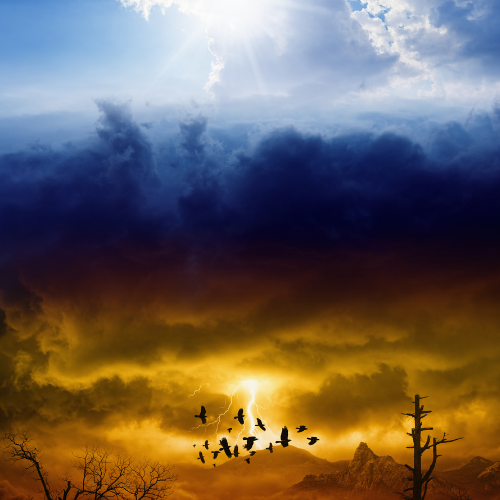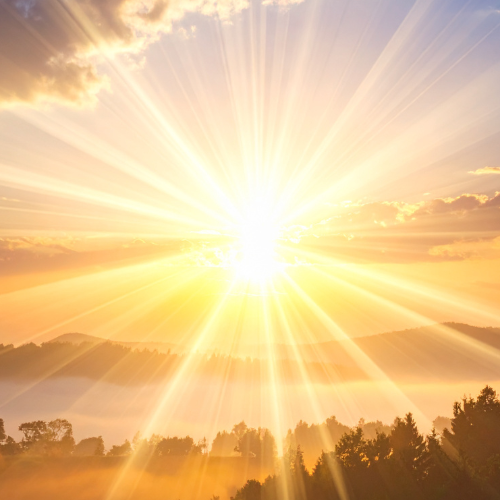Hellfire versus burn pile.
- Gethsemane Lutheran Church
- Aug 16, 2025
- 5 min read

I don’t spend a lot of time thinking about hell. I tend to take for granted that hell is not a foremost concern of people in the world—don’t we have bigger problems going on, like war and food insecurity that runs the spectrum all the way to famine and income inequality, just to name a few problems?
Perhaps you noticed when we chanted the psalm earlier, in psalm 82, we’re listening in on a conversation between God and the other gods. In the ancient worldview, in the time when the psalms were composed, people acknowledged a whole bunch of gods—this is part of the reason why the Hebrew Scriptures emphasize there’s only one God, the most powerful of the gods, the one God who built a covenant community with the people of Israel and delivered them from slavery in Egypt and led them through the wilderness and so on.
Even if you believe there are multiple gods, and if we look at Psalm 82 as a peek into a divine conversation between gods, just take note of what they’re discussing. They’re not talking about human sexuality, they’re not talking about hell: they’re talking about saving people who are weak, saving children who are without parents, defending people without economic wealth. They’re not even talking about hell.
Even though Lutherans in our tradition don’t talk about hell, lots of other Christians do, and apparently a lot of other Christians think they know what hell is and how to get there. This was rather stunning to me, as someone who hasn’t experienced religious trauma. I wanted to learn more about religious trauma and picked up this book by Rev. Dr. Brooke Petersen, an ELCA pastor and seminary professor. She traces the stories of people who came to Christian faith in a church that was not welcoming of their sexuality, how they left that faith and then later returned to Christian faith in a community that does support their sexuality.
In an interview with a woman named April, who grew up as the daughter of a pastor in a conservative Christian denomination, April describes the experience of anxiety attacks as a teenager, feeling like she was having a heart attack, because she was so afraid of dying and going to hell. April is quoted:
“It is just really hard to be okay, and live and move and breathe in the world when you are like, I can’t not be gay, and if I am gay and I am not adequately repentant about it I could get hit by a bus and go to hell in a moment. It is really hard to be like, ‘I should do my Chinese homework,’ you know? It just doesn’t seem important. I think that is where it started and then worsened into clinical depression…”[1]
There are so many more stories like this, and maybe you have your own story, too, of fearing hell because who you are or how you’ve been created.
It is so offensive to me that beloved children of God would be lied to about how unacceptable they are that I can understand how Jesus gets so angry about injustice that he says “I have come to cast fire upon the earth, and how I wish it were already ablaze!”[2]
Jesus isn’t coming to earth with hellfire. The prophets like Jeremiah are not casting people into hell. What they desire is to burn away the stuff that is not of God, and frankly I’d like to throw injustice into a big fire, too.
On a road trip last week, driving through the rural areas of neighboring states, I would occasionally spot a plume of smoke in the distance. I had to pay attention because it could be a wildfire. Thankfully, all the fires I witnessed were set on purpose, arising from burn piles made from rotten wood and dry plant materials.
There are things I’d like to throw into a burn pile. The teachings of false prophets who tell people they’re going to hell for being gay or queer or transgender—I would like to throw that teaching into a fire. The theology that claims certainty about who belongs in hell—into the burn pile it goes.
In the Gospel reading, Jesus says he did not come to bring peace to the earth, which sounds a little strange in this gospel of Luke which started with the story of Jesus’s birth and angels singing about peace. But Luke’s gospel also includes the story of Jesus’s fiery mother singing about how God humbles the proud and lifts up the lowly and fills the hungry with good things. Luke’s gospel also mentions how John the Baptist prophesied about one to come after him who will baptize with the Holy Spirit and fire.
Jesus is not bringing a peace to the earth that amounts to a false peace, the kind of false peace that makes you hide yourself to appear acceptable to people with more power. Division in a household might feel like calculating who you can be “out” to, who you can be honest with about your sexual identity, in order to “keep the peace.” That kind of peace is exhausting, and no one needs it. Burn that up.
Jesus didn’t come to teach us how to escape the world and all its mess; he came to show us how to live in this world with all the mess. Jesus didn’t quit when things got difficult; he kept healing, he kept teaching, even when it was hard stuff. He brought people together, people who wouldn’t otherwise have had anything in common, and made them love one another and work together.
Dr. Petersen’s book about religious trauma is enlightening and importantly includes the stories of return to God. Here’s a quote from one of the people she interviewed named Beth:
“…I did leave…for a long time, …I didn’t go to church, and I missed it. God was always there, but it was like…as I age, I understand the importance of community. We were made to be in community, to heal; we were wounded in our family, in our community, and we will be healed in a community.”[3]
This is why it is so important for us as a congregation to be clear about our welcome of LGBTQIA+ people, to be clear that we’re not sending anyone to hell. We must speak against that kind of hateful rhetoric. This is what makes us part of the sacred cloud of witnesses, like the writer of Hebrews speaks about. Most of the time, when you see a group of people, you’d call that a crowd. But the writer of Hebrews very specifically calls a group of faithful people a cloud of witnesses.
Think back to the times in Scripture when you hear about a cloud: the cloud that goes before the people of God as they travel in the wilderness, the cloud that surrounds Mount Sinai as Moses ascends the mountain, the cloud that suddenly descends around Jesus and Peter and James and John on the mountain of transfiguration—the cloud signifies the presence of God. A cloud of witnesses is not merely a crowd of people: it’s a people signifying the presence of God.[4]
We know God to be concerned about the poor, advocating for justice, and extending welcome to those who are cast out. Everything else can go into the burn pile. We don’t have to live in hell, fearful of fire. We are free to live in the peace of Christ that does not settle for false peace but is indeed the peace that passes all understanding. Just look all around you at this cloud of witnesses.
Amen.
Pastor Cheryl
[1] Brooke Petersen, Religious Trauma: Queer Stores in Estrangement and Return, New York: Lexington Books, 2022, page 1.
[2] Luke 12:49
[3] Brooke Petersen, Religious Trauma: Queer Stores in Estrangement and Return, New York: Lexington Books, 2022, page 95.
[4] 08142022
.png)





Comments